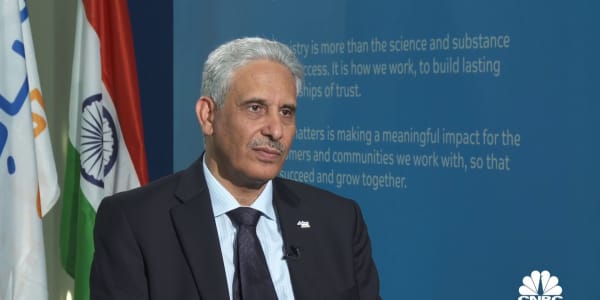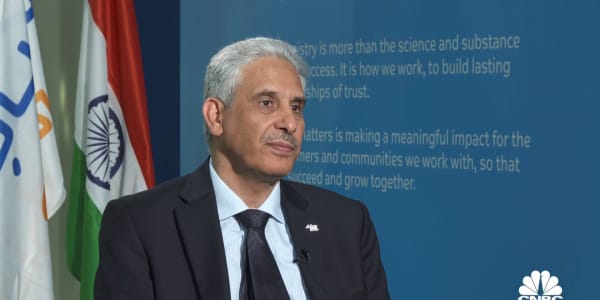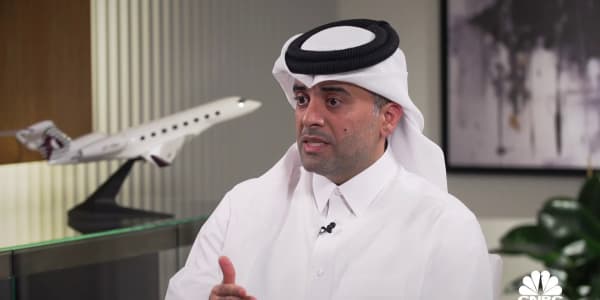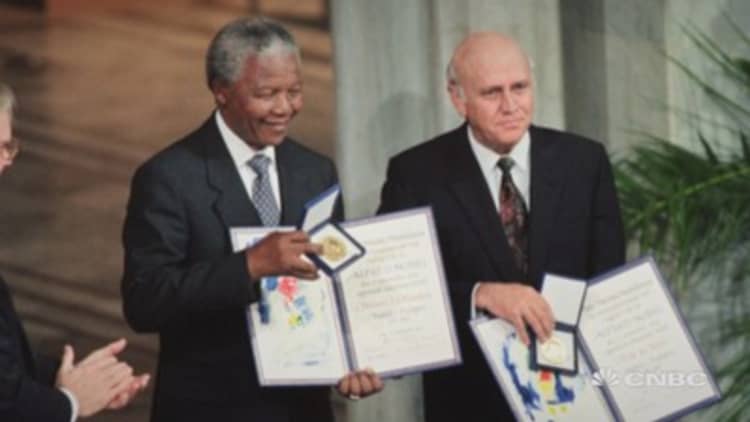
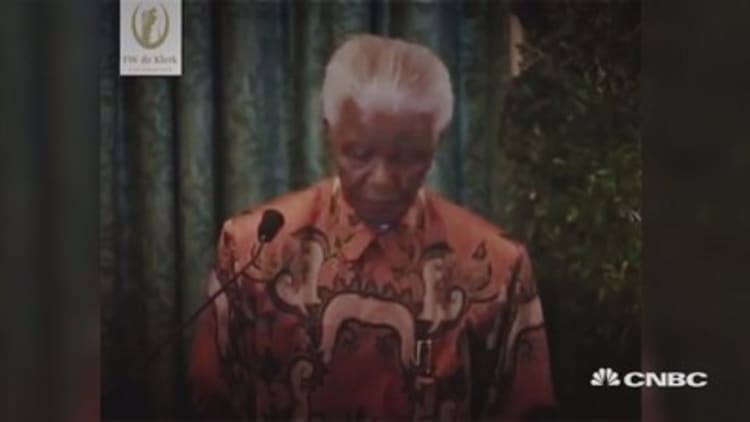
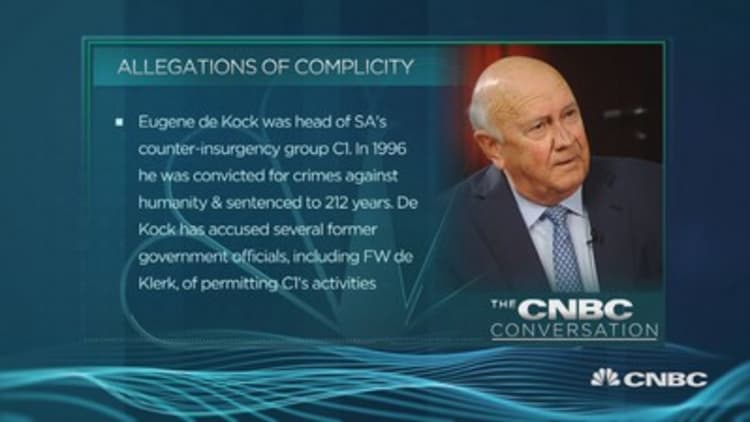
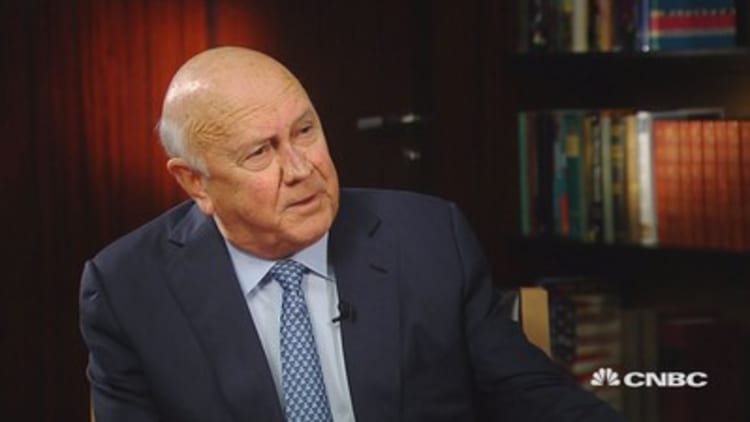
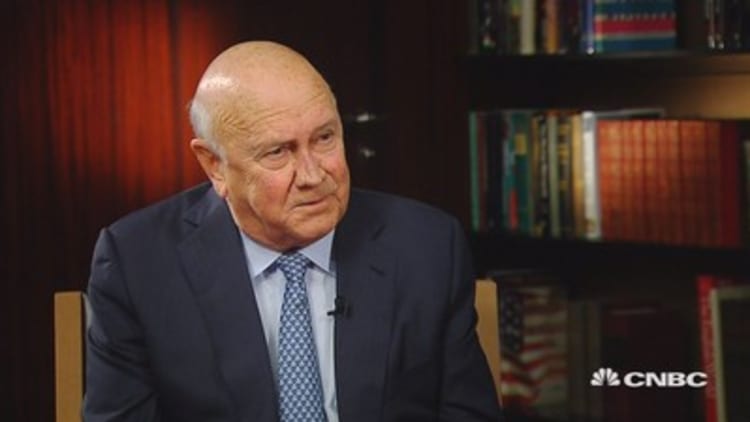
The collapse of the Soviet Union helped topple Apartheid—South Africa's rigidly enforced laws of racial segregation—by removing the global Communist threat, the country's last white president told CNBC.
Frederik Willem "FW" de Klerk received the Nobel Peace Prize along with Nelson Mandela in 1993 for his role in overseeing the end of white-only rule in South Africa.
As president, de Klerk unbanned black-led political parties and enticed Mandela's African National Congress (ANC) party to the negotiating table by suspending the death penalty and releasing political prisoners, a process which led the way to the end of legal segregation.
But in an exclusive one-hour interview with CNBC, de Klerk said he was only able to gain support for making concessions to the socialist ANC party when the threat of Communism proliferation ceased, following the fall of the Soviet Union.
Read More25 years after the Berlin Wall: What's changed?
"We removed every excuse the ANC could offer to not come to the negotiation table," de Klerk told CNBC.
"I would not have been able to do that, let me immediately add, if the Berlin Wall did not come down. I was helped by that the threat of expansionist USSR communism fell away and when we saw that window of opportunity, it helped us to jump through it by accelerating the process."
A biopic of de Klerk's life was released this year, called "The Other Man: FW de Klerk and the End of Apartheid." This movie likens the 79-year-old to Mikhail Gorbachev, the last leader of the Soviet Union, who oversaw the end of communist-rule in Russia.
Despite his Peace Price, de Klerk's legacy remains controversial, with some saying that he only launched negotiations to end apartheid because he realized its end was nigh regardless of whether negotiations took place. A move by Cape Town to rename Table Bay Boulevard after de Klerk met with strong opposition.
South Africa was also subject to international sanctions for its commitment to Apartheid, decades after former colonies across Africa had opted for majority-rule.
However, de Klerk said that sanctions played no role in the move to end Apartheid.
"We successfully rode the waves of sanctions for decades," he told CNBC.
"In the end also, sanctions hurt black South Africans much more than it hurt white South Africans, it never lead to a change at the ballot box, so sanctions was not the driving force, it played a role, but it was not the crucial role. Our reforms were conscious driven."


